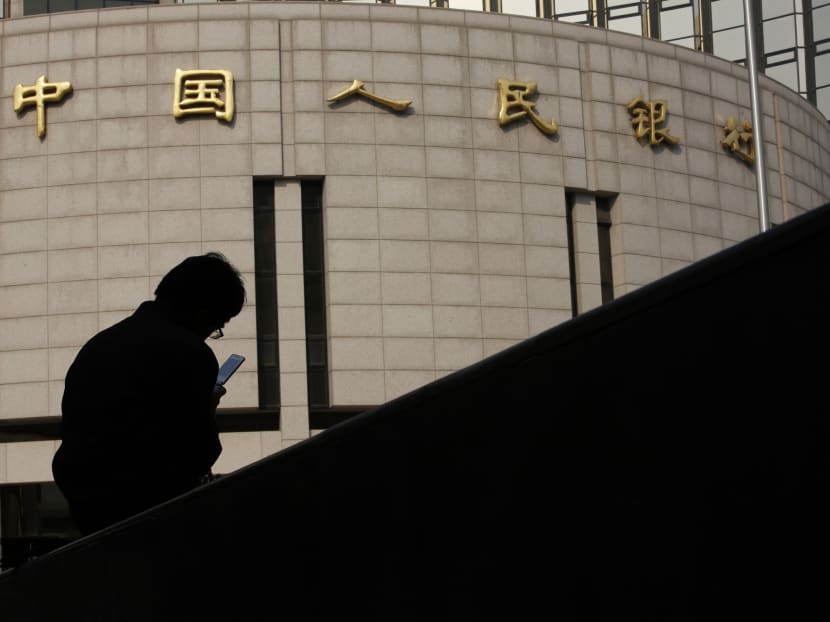Pact cements S’pore’s yuan hub status
SINGAPORE – Singapore has further cemented its position as a major offshore yuan centre, with a slew of initiatives designed to promote the international use of the Chinese currency through the city-state.

A man sits in front of the headquarters of the People's Bank of China, the central bank, in Beijing Oct 17, 2013. Photo: Reuters
SINGAPORE – Singapore has further cemented its position as a major offshore yuan centre, with a slew of initiatives designed to promote the international use of the Chinese currency through the city-state.
In the agreement at the 10th Joint Council for Bilateral Cooperation, China will extend its Renminbi Qualified Foreign Institutional Investor (RQFII) programme to Singapore, allowing institutional investors based here to plough up to 50 billion yuan (S$10.1 billion) worth of the Chinese currency in its securities markets, the Monetary Authority of Singapore (MAS) said yesterday. RQFII licence holders may also issue yuan investment products to the broad pool of investors here.
The agreement comes after British Chancellor George Osborne last week announced a similar arrangement in England, as global financial centres jockey to be the leading yuan hub amid China’s ongoing efforts to internationalise its currency.
“Singapore already leads as a wealth management hub, regional treasury centre and is a springboard to South-east Asia along the key trade corridor with China. Singapore has been growing in strength as an offshore yuan hub and these new initiatives build further momentum in the development of the yuan market in Singapore,” said Standard Chartered Singapore CEO Ray Ferguson.
Ms Anita Loh, Head of Product Management for Treasury and Trade Solutions at Citi, added: “This is positive news as it will further spur the internationalisation of the yuan ... Investors here will have the option to gain direct exposure to the China market, opening up a host of new investment opportunities which were not available before.”
Singapore had a head start in the global race to become a major offshore yuan hub in February when the People’s Bank of China appointed the Singapore branch of the Industrial and Commercial Bank of China as a yuan clearing bank here.
Applications for RQFII licenses are subject to approval by the China Securities Regulatory Commission and State Administration of Foreign Exchange.
As part of yesterday’s agreement, China is also considering allowing Chinese institutional investors to use the yuan to invest in Singapore’s capital markets under its RMB Qualified Domestic Institutional Investor scheme.
Additionally, the two countries will introduce direct currency trading between the yuan and Singapore dollar, the MAS said, adding that further details will be announced separately.
“Singapore is a significant foreign exchange trading hub — ranked the world’s third-largest ... by the Bank of International Settlements. Enhancing our ability to trade yuan is a natural extension of this position and will complement our status as a key currency trading centre,” said Mr Loh Boon Chye, Deputy President for Asia Pacific at Bank of America Merrill Lynch.





